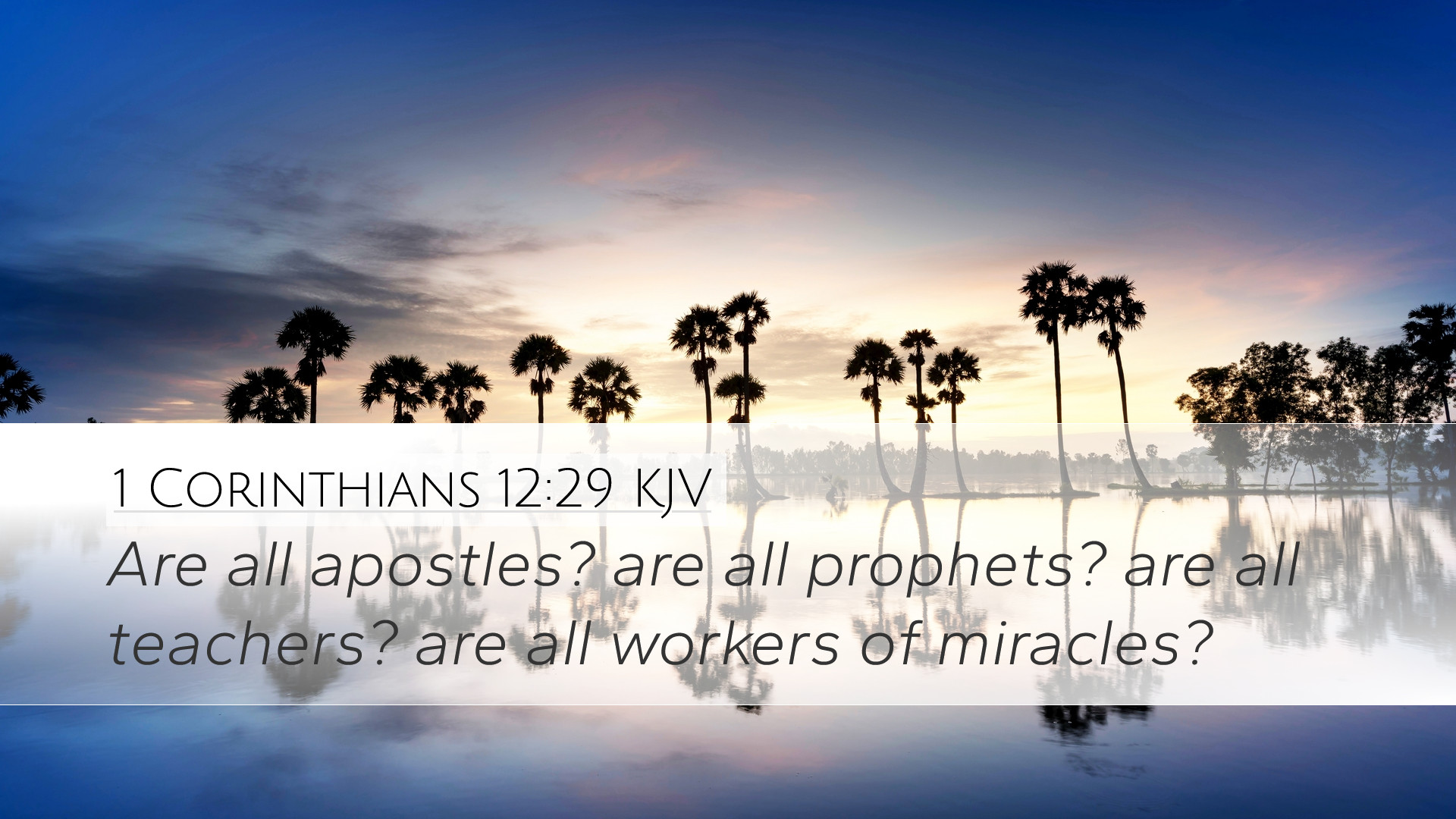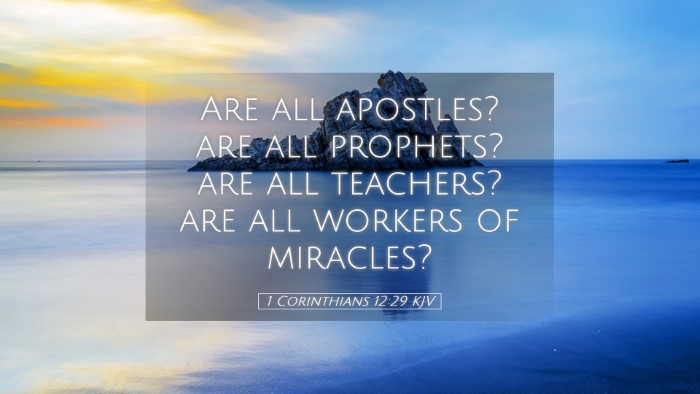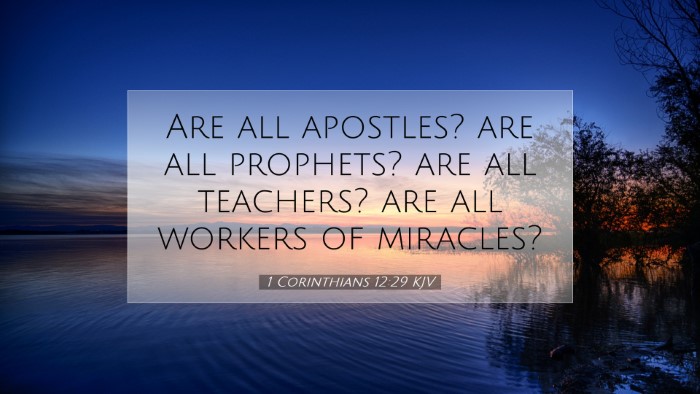Commentary on 1 Corinthians 12:29
Verse: "Are all apostles? are all prophets? are all teachers? are all workers of miracles?"
Introduction
This verse is a part of Paul's discourse on spiritual gifts within the context of the body of Christ. It serves to emphasize the diversity and unity in the church, highlighting that while all believers are part of one body, they have different roles and functions.
Contextual Analysis
In the preceding verses, Paul outlines the importance of recognizing and valuing the diverse spiritual gifts bestowed upon believers. Following this, he asks a series of rhetorical questions to emphasize that not everyone possesses the same gifts or roles within the church.
Commentary from Matthew Henry
Matthew Henry emphasizes that this verse illustrates the principle of diversity in the spiritual gifts of the church. He indicates that just as the human body has many parts, with each part having its own function, so does the body of Christ operate. Henry notes that the rhetorical questions Paul poses serve to correct any misconceptions about the expectation that all believers must occupy the same office or role. He points out that these questions serve as a reminder that the church's strength lies in its variety of gifts and functions.
Insights from Albert Barnes
Albert Barnes provides a detailed examination of Paul’s questions, commenting that each role mentioned (apostle, prophet, teacher, etc.) signifies a distinct function essential to the church's mission. He points out that the apostolic office was foundational to the early church, while the prophetic and teaching roles were vital for instruction and edification. Barnes further explains that while all believers have equal access to the Holy Spirit, the distribution of gifts is as God wills, emphasizing the sovereignty of God in arranging the functions within the church.
Adam Clarke's Perspective
Adam Clarke interprets Paul's inquiries as a means to address the pride and division that were evident in the Corinthian church. He stresses that the questions reflect a God-given hierarchy in the roles within the church, where each member should recognize their unique contribution. Clarke discusses the necessity of humility and the recognition that no single role is superior to another, as all are essential in fulfilling God's plan for the church. He believes that Paul’s message aims to foster unity and mutual respect among the members of the body.
Theological Implications
This passage has significant theological implications regarding ecclesiology—the doctrine of the church. The questions raised by Paul underline the notion that the church is not a monolith but a diverse entity made up of many parts, each fulfilling a unique and important role. The expectation is not uniformity of function but unity of purpose, reflecting the nature of the Godhead itself as diverse yet one.
- Diversity of Gifts: The variety of roles signifies the breadth of God's grace and the multifaceted nature of His work in the world.
- Unity in Mission: Despite the diversity of roles, all are called to contribute to the common mission of the church, which is to glorify God and advance the Gospel.
- Recognition of Roles: There is an essential need for the church to recognize and appreciate the different gifts and roles that each member brings.
Practical Application for Church Leaders
For pastors and church leaders, this verse serves as a reminder to cultivate an environment where all members feel valued for their contributions, regardless of their function. It encourages leaders to:
- Promote Inclusivity: Create opportunities for all members to use their gifts in service, fostering a culture of unity and collaboration.
- Educate on Spiritual Gifts: Offer teaching on the nature of spiritual gifts to help members understand and identify their roles within the church.
- Address Discontent: Address any feelings of inadequacy that may arise when members compare their gifts to others, emphasizing that each role is essential.
Conclusion
1 Corinthians 12:29 serves as a powerful reminder of the diversity and unity in the body of Christ. By understanding and valuing each member's contribution, the church can function as a harmonious and effective body, fulfilling its God-given mission in the world. The insights drawn from the commentaries of Matthew Henry, Albert Barnes, and Adam Clarke provide a rich foundation for understanding this verse, prompting reflection on the roles of believers and the importance of unity amidst diversity.


